Civil Liberties, Civil Rights, Human Rights, Political Prisoner, Supreme Court, U.S. Militarism, War Resister
Podcast: Play in new window | Download
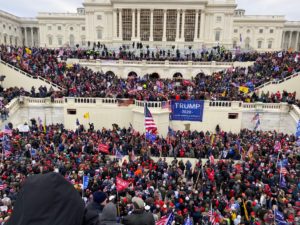
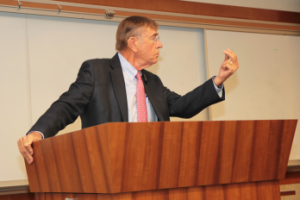
Federal Case Against Donald Trump
There is a great deal of speculation as to whether former president Donald Trump will eventually be indicted for crimes allegedly committed while he was the president. Well, in what might prove to be the most serious blow yet to Trump’s effort to stay out of jail, on March 28th, a federal judge ruled that both former president Trump and Atty. John Eastman who had advised him on how to overturn the 2020 election had most likely committed felonies, including obstructing the work of Congress and conspiring to defraud the United States. The ruling represents a highly significant breakthrough for the House committee investigating the January 6th attack on the Capitol. Judge David O. Carter found that the actions taken by Trump and Eastman amounted to “a coup in search of a legal theory.”
The judge’s ruling may be the House committee’s biggest win to date, as it suggests that the investigators have already built a case strong enough to convince a federal judge of Trump’s culpability in the January 6th insurrection.
Specifically, the ruling means that the House committee will now receive more than 100 emails related to the legal strategy proposed by Eastman to pressure Vice President Mike Pence not to certify electors from swing states when Congress convened on January 6, and thus to not certify the electoral vote. In making his ruling Judge Carter said, “Dr. Eastman and President Trump launched a campaign to overturn a democratic election, an action unprecedented in American history.”
Just how significant is this federal court ruling? What would a federal prosecutor need to show a judge and jury to be able to hold Trump liable for his actions around January 6th? And what about other actions by the former president while in office that many criminal law experts claim were illegal? And, of course, what role will politics ultimately play in determining whether Trump ever stands trial and is convicted by a jury?
Guest – Attorney Michael Tigar. Michael Tigar has been acting professor of law at UCLA, the Jos. D. Jamil Chair of Law at the University of Texas, and the holder of an endowed professorship at Washington College of Law. He is the author of numerous books, including Thinking About Terrorism: The Threat to Civil Liberties in Times if National Emergency and most recently, Sensing Injustice: A Lawyer’s Life in the Battle for Change. He has also represented such notable clients as The Washington Post, Rep. Ron Dellums, and Lynne Stewart.
—-
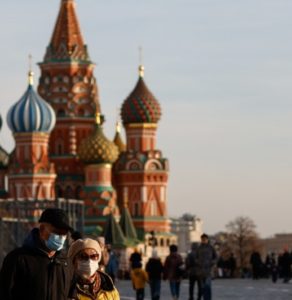
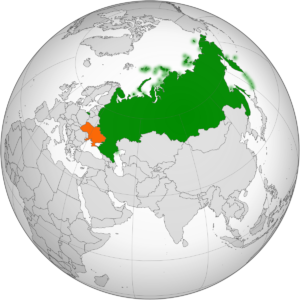
Russia, Ukraine War Analysis
And now to the matter of Russia’s war in Ukraine and the role of a free press in war time. Today, much is made of the fact that in Putin’s Russia, little or no accurate news of the war is reaching the Russian people. Instead, what they read in their newspapers or hear on their radios and see on their televisions is no more or less than what Putin wants them to read or see or hear. Meanwhile, here in the United States, the American people are provided with virtually non-stop newspaper and live eve-witness television coverage of the war in Ukraine; “coverage” that comes from reporters and others, often in real time, and on the ground in the middle of Putin’s war. Surely the dramatically contrasting way in which the Russian people and the American people are experiencing the war via the media must play a major role in how the two peoples feel about the war. So, too, how the US wars in Iraq and Afghanistan were covered by the US media must have played a role in how we, the American people, felt about those wars. Well, today we look at the role a nation’s media can play in shaping public support for or against a war that is being fought by that nation.
Guest – Norman Solomon is truly one of America’s true champions of a free and honest press, free and honest in war time as well as in peacetime. Mr. Solomon is one of the founders of F.A.I.R., or Fairness and Accuracy in Reporting, which has proved to be a powerful watchdog of the US media. Norman Solomon is also the co-founder of the internet news and opinion source, RootsAction.org. He is, of course, the author of too many articles to recite here. He is also the author of a number of books, including “War Made Easy: How Presidents and Pundits Keep Spinning Us to Death;” and “Made Love, Got War: Close Encounters with America’s Warfare State.”

——————————-
Animal Rights, Civil Liberties, Human Rights, Supreme Court
Podcast: Play in new window | Download
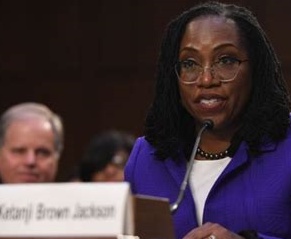
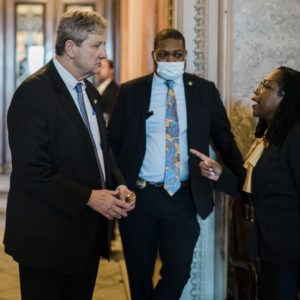
The Supreme Court Nomination of Judge Ketanji Brown Jackson
During vicious, racist questioning by Republican members of the Senate Judiciary Committee, Judge Ketanji Brown Jackson remained dignified, poised and unruffled. Jackson’s record is impeccable. No nominee for the Supreme Court has had stronger credentials.
GOP senators on the committee leveled racist and sexist attacks against Jackson, playing to their radical right-wing base. Many of the questions mirrored QAnon talking points. GOP committee members apparently sought to peel off votes for Jackson’s confirmation while appealing to right-wing voters in their forthcoming congressional and presidential campaigns.
Ted Cruz attacked Jackson with charges about critical race theory. Josh Hawley tried to paint Jackson as “soft on crime.” And Lindsey Graham accused Jackson of aiding terrorism by representing Guantánamo detainees.
Nevertheless, it appears that Jackson will be confirmed to the Supreme Court, the only Black woman ever to serve as a justice on the high court. Although Jackson’s confirmation will not change the skewed ideological balance of the court, she and Sonia Sotomayor will comprise a strong progressive wing of the court.
Guest – Attorney Marjorie Cohn, who is a co-host on Law and Disorder. Marjorie is professor emerita at Thomas Jefferson School of Law, former president of the National Lawyers Guild, and a former criminal defense attorney. Her books include The United States and Torture: Interrogation, Incarceration, Abuse, and she writes a regular column for Truthout.
—-
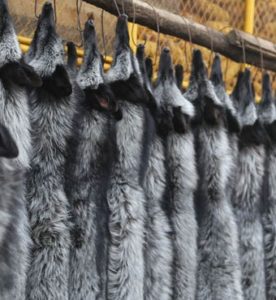

Basic Legal Rights For Animals: Activists and Advocates
Discussions over whether animals are sentient beings, capable of feeling pain, pleasure or suffering, date back as far as ancient thinkers such as Plutarch, Hippocrates and Pythagoras. They all advocated for the fair treatment of animals. The term animal rights stands for the proposition that non-human animals have the right to be treated, not as property, but rather as the individuals they are, with their own desires and needs.
Animal law is now widely taught in law schools across North America. There are 167 law schools in the U.S. and Canada, and 11 in Australia and New Zealand, teaching courses in animal law. Several legal scholars support extending basic legal rights and to personhood to non-human animals.
Critics of animal rights argue that nonhuman animals are unable to enter into a social contract, and thus cannot have rights. Another argument is that animals may be used as resources as long as they don’t undergo unnecessary suffering.
Certain forms of animal rights activism, such as the destruction of fur farms and animal labs by the ALF or Animal Liberation Front, have also attracted criticism, and prompted Congressional reaction by enacting of harsh laws allowing these activities to be prosecuted as terrorism. These laws include the Animal Enterprise Terrorism Act.
Guest – Attorney Tamara Bedic, chairperson of the National Lawyers Guild Animal Rights Project. She is a graduate of the University of Virginia School of Law and a masters degree from Columbia University-NY University. Tamara practices employment law with a focus on women and harassment in the workplace.

————————–
CIA Sponsored Terror, Human Rights, Violations of U.S. and International Law, War Resister
Podcast: Play in new window | Download
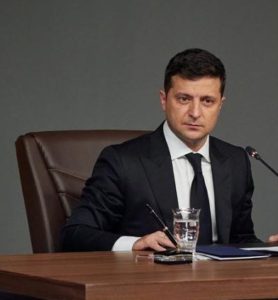

Russia, Deescalation And War Crimes
The Nuremberg tribunal called aggression “the supreme international crime” because it contains within it all other crimes. German Nazi leaders were tried, convicted, and hung at Nuremberg for the German war of aggression they began in September of 1939 when they invaded Poland and started World War II.
The guilty verdicts at Nuremberg were not merely “victors’ justice.” Its precepts were incorporated into the UN Charter. The Charter, which is a treaty ratified by the countries of the world, established a process for keeping the peace and “to save succeeding generations from the scourge of war.” War is outlawed with the only exception being self-defense after an armed attack or with the permission of the Security Council.
Russia is guilty of aggression against Ukraine. But that being said, the United States has baited the Russian bear repeatedly, starting in 1990 with the breakup of the Soviet Union. At that time, US Secretary of State James Baker promised the Russian leader Mikhail Gorbachev that the US-led NATO organization would not move “one inch” east towards Russia. This promise was broken.
The Russians were betrayed.
Since then, NATO has recruited 11 former Soviet bloc and Warsaw Pact countries into its military organization. Led by the United States, NATO is an organization has played an aggressive role, having carried out the bombings of Serbia, Iraq, Syria, Somalia, and Libya.
NATO has placed missiles in Poland within 100 miles of the Russian border. Missiles on the long border between Ukraine and Russia could hit Moscow in 10 minutes making it impossible for Russia to defend itself. Russia’s attempts to make United States understand that they have crossed a red line has been consistently rejected.
This is not to defend Russia’s actions but to place them in historical context. The world now has come to the edge of an abyss. A nuclear war could easily be started, annihilating all of humanity. The rule of law must be restored.
Russia must honor a cease-fire and withdraw. The United States must forswear arming Ukraine and recruiting the Ukraine into NATO. Ukraine must go forward as a neutral country like Austria or Finland.
Guest – Peter Kuznick is a professor of history at American University and directs the Nuclear Studies Program. at that institution. Peter and Oliver Stone wrote The Untold History of the United States and also produced a showtime documentary series based on the book.
—-

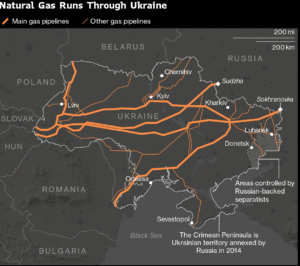
Ukraine Invasion Economic Analysis
Horrific images of the war in Ukraine and the now more than 2 million displaced persons streaming over Ukraine’s border continue to emerge. Ukrainian President Volodymyr Zelensky is calling for a no-fly-zone over Ukraine and the corporate media is hyping more punishing sanctions against Russia.
So far, Joe Biden has resisted calls for a no-fly-zone, apparently mindful that enforcing a no-fly-zone would mean the US Air Force shooting down Russian planes and bombing Russian ground installations that provide Russian forces with anti-aircraft support. That could well devolve into a nuclear confrontation.
The United States and other Western countries have imposed sanctions against Russia, including expelling some Russian banks from the SWIFT financial messaging system, essentially barring them from international transactions and effectively blocking Russian exports and imports, as well as banning imports of Russian oil and gas. But these sanctions harm not the Russian oligarchs, but the Russian people while raising gas prices for people in the United States.
The prospect of cyberwarfare lurks in the background, which could redound to the detriment of people around the world, including those of us in the United States. Meanwhile, the U.S. and its allies continue to send massive armaments to Ukraine, to the delight of the huge military contractors.
While Russia’s full-scale invasion of Ukraine constitutes illegal aggression prohibited by the UN Charter, it is necessary to analyze the history and geopolitics as well as the role NATO has played in the region, in order to understand both the context for the conflict and how it could have been prevented.
Guest – Corinna Mullin, an organizer and professor of political science and political economy at the John Jay College of Criminal Justice and Brooklyn College-CUNY in New York. Corinna is also a member of the steering committee of the International People’s Tribunal on U.S. Imperialism: Sanctions, Blockades, and Economic Coercive Measures.

——————————
Censorship, Civil Liberties, Human Rights, U.S. Militarism, Uncategorized, Violations of U.S. and International Law, War Resister
Podcast: Play in new window | Download

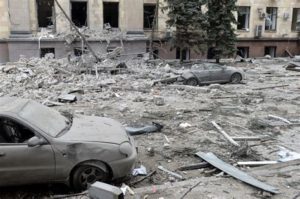
Russian Invasion of Ukraine Analysis
We turn to the on-going war between Russia and Ukraine. Let me introduce this topic by sharing, briefly, a few of my own thoughts on the matter. I believe the Russian invasion and its on-going deadly and destructive military assault in Ukraine is, of course, just plain wrong. I believe it mirrors, albeit to a much lesser extent, America’s deadly and destructive military assaults on Iraq and Afghanistan, to say nothing of Vietnam, Central America and too many other places to recount here. I believe Russia should end its war before its impact spreads far beyond the current conflict; before it provides an even greater opportunity than it already has to the capitalist war profiteers in America, and further emboldens the imperial designs of America, thereby radically changing the future in ways too dire to contemplate.
I believe the severe sanctions imposed on Russia will have little impact on Putin and the Russian oligarchs but will have a devastating impact on the working-class people of Russia, and of the entire world. I believe that the United States bears at least as much blame for the war as does Russia, and probably more. That may, at first blush, seem an odd thing to believe. But if you stay tuned, today’s guest on the war will explain why he and I believe this to be true. Lastly, I am personally saddened, beyond adequate description, over the fact of this new war. It, like America’s illegal and devastating wars in other countries, tells me that since the days of the cave man wielding his club, while the weapons used by warring sides to resolve their differences have advanced and become far more deadly and sophisticated, we humans have not, ourselves, found the way we resolve our disputes beyond that of the cave man with his hand-wielding club.
Guest – Richard Becker is the Western Region Coordinator of the ANSWER Coalition; that is Act Now to Stop War and End Racism. Richard Becker is a regular contributor to The Liberation newspaper, a publication of the Party for Socialism and Liberation, of which he is a member. And Mr. Becker is the author of Palestine, Israel and the US Empire, as well as of the book, The Myth of Democracy and the Rule of the Banks.
—-

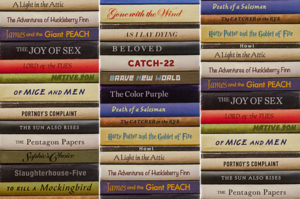
A New Wave Of Book Banning
Book banning is the most widespread form of censorship in the United States. It’s when government officials, private individuals, or organizations remove books from libraries, school reading lists, or bookstores because they object to the content or themes contained therein. Children’s books are the main targets.
Often, complaints are that the book contains is sexually explicit, contains graphic violence, has offensive language, or shows disrespect for parents and family. Censors claim they’re afraid the contents are dangerous for kids, or that they’ll cause young people to raise questions, and incite critical inquiry among children that parents, political groups, or religious organizations deem inappropriate or aren’t ready to address.
Before the 1970s book bans typically focused on obscenity. Lady Chatterley’s Lover by D. H. Lawrence and Ulysses by James Joyce were often banned. From the late 1970s on, attacks focused on ideologies. To Kill A Mockingbird, The Color Purple, The Catcher in the Rye, and Harry Potter are among the 50 of the top banned books in this country.
A new wave of book banning in public and school libraries is sweeping the nation in 2022. It’s been under way since debates have percolated over critical race theory and what students should learn in the classroom. Several states are cutting funding for books written by authors in specific communities.
Guest – Christopher Finan, executive director of the National Coalition Against Censorship. He previously served as president of the American Booksellers Foundation for Free Expression, the bookseller’s voice in the fight against censorship. Before that, he was executive director of Media Coalition, a trade association that defends the First Amendment rights of producers and distributors of media. Christopher is the author of From the Palmer Raids to the Patriot Act: A History of the Fight for Free Speech in America by Beacon Press, which won the 2008 Eli Oboler Award of the American Library Association. His forthcoming book is How Free Speech Saved Democracy.

———————————
Civil Liberties, Human Rights, Right To Dissent, U.S. Militarism, War Resister
Podcast: Play in new window | Download
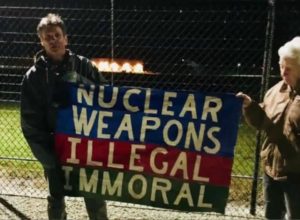
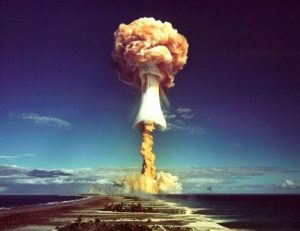
Lawyers Committee on Nuclear Policy
The United States of America was the first, and has since been the only, country to use nuclear weapons. In 1945, at the end of World War II, the US bombed Hiroshima and days later bombed Nagasaki, exterminating several hundred thousand people. The bomb was used twice to intimidate the Russians even as the United States knew that Japan wanted peace.
The United States has embarked on a one and a half trillion-dollar project to upgrade its nuclear arsenal. It has developed the capacity to fire these weapons so that they are delivered across oceans in a matter of minutes with all of the frightening implications. The prestigious Bulletin of Atomic Scientists has a “Doomsday Clock.” The minute hand on the clock has been steadily advancing and is now only 100 seconds to midnight.
Because of their devastating civilian killing capacity, the use of or threat to use these weapons is unlawful.
Unlike the Paris climate agreement, which set goals for the reduction of fossil fuels, there are no targets for the express reduction of nuclear weapons. Nor have countries’ efforts to reach such targets been assessed. We have no global process for the elimination of nuclear weapons.
Guest – Attorney John Burroughs, is the former Executive Director, now Senior Analyst, of the Lawyers Committee on Nuclear Policy. LCNP was founded in 1981 as an association of lawyers and legal scholars who engage in research and advocacy in support of the elimination of nuclear weapons. The Lawyers Committee on Nuclear Policy serves as the United Nations office of the International Association of Lawyers against Nuclear Arms. John has represented LCNP in Nuclear Non-Proliferation Treaty review proceedings and in negotiations on the Treaty to Prohibit Nuclear Weapons.
—-
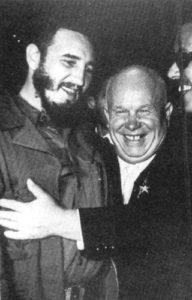
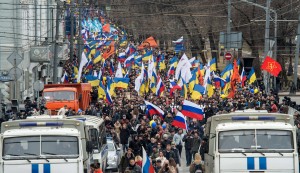
Ukraine Crisis and Parallels To The Cuban Missile Crisis
As tensions between Russia, Ukraine, the United States and other NATO countries escalate, the corporate media is portraying the conflict as aggression by Russia and US-NATO’s position as purely defensive. But even though the Biden administration is rattling its economic, political and military sabers at Russia, Ukrainian President Zelensky says a Russian invasion of Ukraine is not imminent and warns that “panic” by U.S. and other NATO leaders is causing economic destabilization in Ukraine. Meanwhile, the U.S. is sending massive amounts of weapons to Ukraine, boosting the profits of military contractors.
In 1990, as the Soviet Union was disbanding, then US Secretary of State James Baker assured the Soviets that NATO would not expand “one inch to the East.” Nevertheless, since the late 1990s, NATO has expanded to include many countries including some that border Russia, which Russia sees as a real threat. If Ukraine joins NATO, Russia considers that an “existential threat.”
Since the US-supported 2014 coup in Ukraine that led to the ouster of President Viktor Yanukovich, the US has delivered $2 billion in military aid to Ukraine.
Although Ukraine and Russian-backed separatists signed a 12-point ceasefire deal in 2014, known as the Minsk agreements, Ukraine has not implemented the constitutional changes required by the Minsk agreements. The unconditional US military assistance to Ukraine has encouraged the Ukrainian government to ignore the Minsk agreements and reassert sovereignty over Russian Crimea.
In October, Ukraine launched attacks in Donbass, Russia, and Russia responded with troop movements and military exercises. The US is framing Russia’s troop movements as a threat to invade Ukraine without provocation.
Professor H. Bruce Franklin, author of the 2018 book, Crash Course: From the Good War to the Forever War, has drawn parallels between today’s standoff at Ukraine’s border and the Cuban missile crisis, although the great power roles were reversed.
Guest – Bruce Franklin is a former Air Force navigator and intelligence officer, a progressive activist, and the John Cotton Dana Professor of English and American Studies, emeritus at Rutgers University in Newark, New Jersey. He has authored or edited 19 books and has received lifetime achievement awards from the American Studies Association and other major academic organizations.

—————————————


















